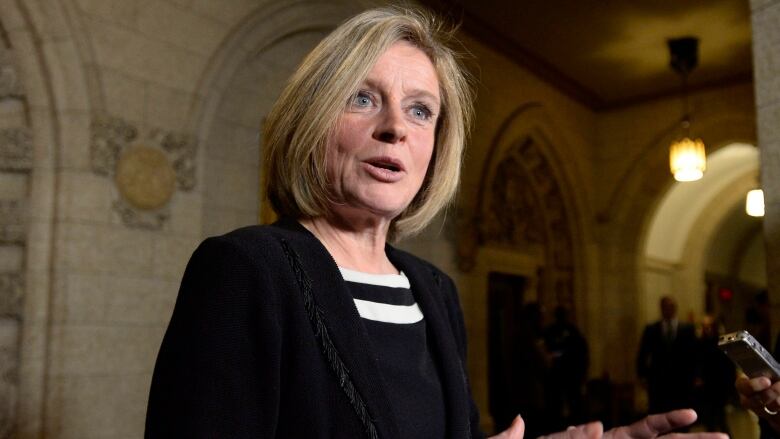Calgary prof says decisions of new B.C. government could affect Alberta NDP
Still unclear who will govern B.C., but Alberta watching with great interest

British Columbians are waiting with bated breath for the results of absentee ballots and recounts to determine what shape the next provincial government will take.
But an economics professor at the University of Calgary says across the Rockies, Albertans are on tenterhooks too.
"There's just a heightened degree of uncertainty here in so many dimensions," Trevor Tombe told On The Coast host Stephen Quinn. "We will just have to wait and see how things develop on Site C, on pipelines, and also on the thermal coal export levy.
"Until this uncertainty is resolved, I think investors might be a little wary of projects here."
Tombe says if anew B.C. government does not approve Kinder Morgan's Trans Mountain pipeline expansion, which was approved by the federal Liberal government last fall, itcould be particularly damaging to Alberta's NDP government and its Climate Leadership Plan.
Pipeline politics
"Part of the way the plan was sold was to gain social license for pipeline projects," he said. "It looks like the results of the B.C. election ... means that the Climate Leadership Plandidn't have the desired effect of insulating our oil and gas industry from environmental concerns elsewhere, like in B.C.
"It really might cost the government here their jobs."
Tombe also says the Site C Dam project was viewed as one way for Alberta to achieve the goal of phasing out coal power through interprovincial electricity transmission. However, there currently exists limited capacity for interprovincial power transmission.
Listen to the full interview here:
With files from CBC Radio One's On The Coast












_(720p).jpg)


 OFFICIAL HD MUSIC VIDEO.jpg)
.jpg)



























































































